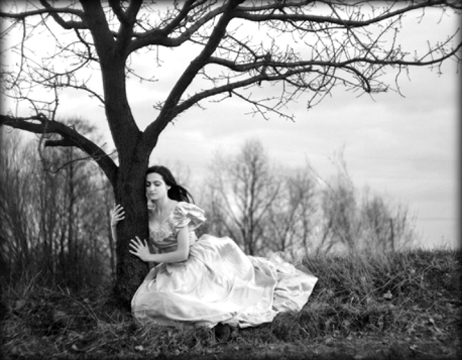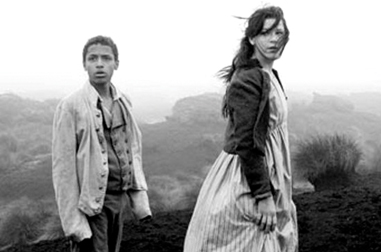Meeting characters through fiction
By Dilshan Boange
A central facet in studying fiction as a genre of literature is that
characters occupy a central role in bringing out the world that is
portrayed by the writer.
After all, if a written narrative simply offers a description of the
social, economic, political situation of a place in a given period of
time and has no story based on persons, their actions, and events then
that book is unlikely to have the qualities of a work of 'fiction'.
 Therefore, to understand characters and how they interact with other
characters and represent the world they are set in is one of the
fundamentals of identifying the premise of a work of fiction which could
either be a novel or short story. Therefore, to understand characters and how they interact with other
characters and represent the world they are set in is one of the
fundamentals of identifying the premise of a work of fiction which could
either be a novel or short story.
To analyse a character in a novel with relation to his or her
conditions in life the emotional states in which the characters are
found and what makes them have their identity is a way by which the
social, economic, political, cultural and aesthetic sensibilities of
that society in which the character is placed can be understood.
Therefore, characters are pathways, or windows through which the
'milieu' in which the story is set can be gauged and comprehensively
grasped.
Now in contrast to novels or short stories, when we consider the
genre called 'Drama' and approach it in the nature of literary studies
one must keep in mind that a drama can be studied at two levels (unlike
a novel or short story), which is firstly as a 'written text', as a
'script', and secondly as a 'performance', as a 'play'.
When we approach drama studies from a purely textual basis and study
only the words written by the playwright we interact with and engage the
story of the play from the perspective of the playwright.
Vision
The vision created in our minds is then as readers and we can 'visualise'
the action in our mind based on what has been described by the
playwright in the script.
When we approach the study of a drama by studying the performance we
see coming to life through live actors on stage, we see the story from
the perspective of the drama director.
Therefore, drama studies can be two fold as firstly studying the
playwright's text or script, and study of 'theatre' where the live
performance of the play is analysed.
In analysing theatre the primary 'dimension' we encounter is what the
director has created for us to grasp visually, as well as through our
auditory senses as dialogues and music. And what we encounter when we do
drama studies as analysing 'performance' is the 'director's vision' he
has intended for us the viewers.
When studying the script of a drama we occupy the seat of a 'reader'
and when we approach drama studies as theatre or performance we occupy
the seat of a 'viewer'.
The director's vision in a work of theatre is a 'narrated' story to
the viewers. Casting of actors, the stage set design and choice of
lighting are some of the key elements that create the vision of the
director as well as setting the limits of what we are to grasp visually,
whereas when reading a drama script and engaging the playwright's
written text we can imagine the action developing in our head based on
what is described in the script.
Therefore, a similarity of how a novel or short story builds a
picture in the mind of the reader from the prose can be seen to an
extent when we have the drama as a script and read what the playwright
has written.
Limits
A playwright will usually place limits of what is described in the
script about the characters appearance or the stage set design.
Unless the playwright intends to stringently limit the director from
exploring and experimenting with new elements to create the 'director's
vision', the playwright may not go into minute detail about the setting
and the facial appearance of the characters.
However, in the more traditional novel, especially the novels that
were written during the Victorian age in England we are likely to find a
significant amount of details describing the characters and their
environments to us.
|

A scene from Wuthering Heights |
This is one significant feature we must keep in mind when approaching
the study of fiction as a written text, in comparison to drama as a
written text, since both these forms of studies are adopted in courses
of literature studies today.
The works of fiction as novels and short stories and drama as we have
discussed are built on characters and of course at times there can
perhaps even be a single character that forms the basis of the story.
A fundamental related to studying or analysing characters in a novel
or a drama is to grasp their emotions and feelings in various
situations. The importance of this factor is on the one hand as said
before, is to gauge the nature of a character and to thereby understand
the world around him or her, and also to see if the character undergoes
any transformations between the start and end of the story.
Is the protagonist or any other character for that matter the same
person that we find at the start, towards the end of the story? If not,
then what were the reasons that changed that character towards the end?
There are basic and fundamental questions that must be asked when in
studying characters in a story.
The story could either be one narrated in prose as a work of fiction,
or could be a script written in order to be acted as a work of theatre.
Emotions
How do we approach the matter of gauging the moods and emotions of
the characters? In a novel the writer has the freedom to describe at
length the state of emotions that a character is going through.
This makes it considerably easier for the reader to approach the
character and analyse it. However, it is not only the prose descriptions
that are key to unravelling the 'inner being' of a character.
The lines spoken by a character or spoken to and how the reactions
will occur through dialogue are also essential to understand the
character and his or her state of emotions.
To a great extent when we approach to dissect and analyse a character
what we are doing in certain ways is something of the nature of a
psychologist.
Because what is happening in a way is that by studying the
character's behaviour in the story we are trying to understand 'mind' of
the character.
On the basis of purely studying what is written as a text, a novel
may at times give more descriptions of the character and situations to
gauge the character while a drama written as a script may not always
offer a great degree of description as earlier mentioned.
Therefore, it is important to realise that the performance of a drama
offers much to grasp the nature of the character in the story.
When actors portray their characters on stage their faces will say
much about their moods which may not always be stated in the
playwright's 'script'. The tone of voice used by an actor in portraying
a particular character will give an indication of certain psychological
facets of that character. But of course there is no guarantee that every
actor cast in a particular role of a particular play will deliver the
same sort of effect in every performance.
Therefore, theatre can offer variations of a drama script while what
is presented in the novel remains unvarying.
This article does not by any means claim to be an exhaustive
discussion about how character analysis can be done in a work of fiction
or drama. It is after all a vast subject, on which I hope my article has
offered a few helpful hints to enthusiasts and beginners in literature
and drama studies. |

